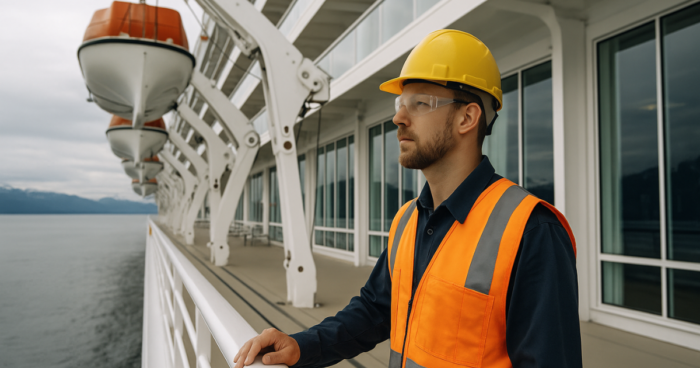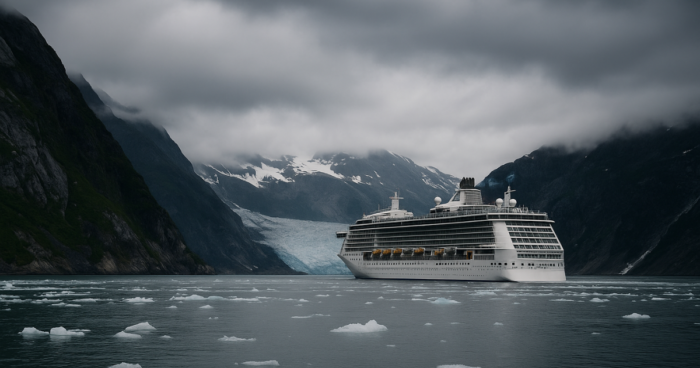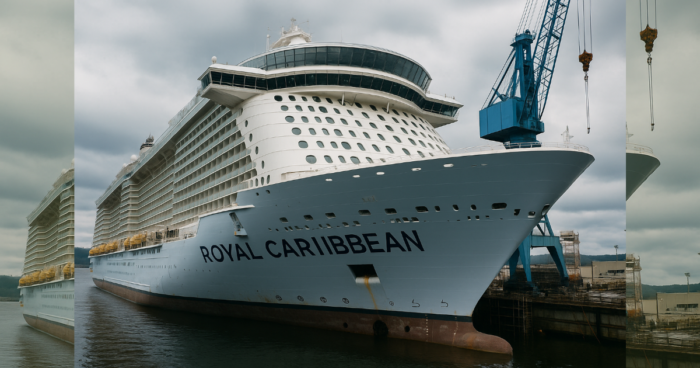Many travelers are surprised when their long-awaited Alaska cruise gets cancelled, sometimes just days before departure. One of the most common cruise lines to make such adjustments is Royal Caribbean. Whether it’s due to weather, logistics, or business decisions, these cancellations can be frustrating and confusing.
This article breaks down the real reasons behind frequent Royal Caribbean Alaska cruise cancelled, offering insights into industry challenges and tips for travelers to protect their vacation. From stormy skies to staff shortages, we’ll explore the key factors at play and explain how you can reduce your risk of disruption.
The Harsh Realities of Alaska’s Weather
Alaska’s weather is breathtaking, but also unpredictable. Thick fog, sudden storms, and icy conditions can halt cruise ship movement, especially near narrow passages like the Inside Passage. Even seasoned captains can’t always navigate safely in these conditions.
Early-season (May) and late-season (September) sailings are particularly vulnerable. In 2022, a May cruise was cancelled after late spring snow caused icy buildup along the Skagway docks. Similarly, in 2023, dense fog in the Gulf of Alaska forced a rerouting that ultimately became a full cancellation. When safety is at stake, Royal Caribbean often chooses to delay or cancel.
Port Access Issues in Remote Alaska Towns
Alaska’s charming cruise stops, Skagway, Juneau, and Sitka, are remote, small towns with limited port infrastructure. A single damaged dock can create ripple effects for multiple cruise lines.
In recent years, construction delays in Skagway and rockslides near the port caused last-minute schedule shuffling. Sometimes, there simply aren’t enough docking spots to accommodate all ships. Add to that occasional port strikes or local restrictions, and Royal Caribbean may choose to cancel rather than significantly alter an itinerary.
Ship Mechanical or Technical Problems

Cruise ships are essentially floating cities. When something goes wrong, propulsion, plumbing, or navigation, it can’t be fixed on the fly. In several cases, Royal Caribbean has cancelled Alaska sailings due to mechanical repairs requiring drydock service.
For example, in 2021, Radiance of the Seas was pulled from service mid-season after a propulsion issue disrupted two consecutive voyages. The company opted to cancel the rest of its Alaskan schedule to address the problem at once. Though rare, technical difficulties are a valid reason for sudden cancellations.
Low Bookings and Itinerary Adjustments
Cruising is a business, and low passenger numbers can make some sailings financially impractical. If Royal Caribbean doesn’t meet a minimum occupancy threshold, it may cancel a cruise, merge it with another, or reroute ships to higher-demand regions.
Sometimes, Alaska sailings are cut in favor of more profitable Caribbean routes. This is especially true for early or late-season departures when demand is soft. It’s not personal, it’s economics.
Staff Shortages & Operational Challenges
The cruise industry is still recovering from the COVID-19 workforce fallout. Recruiting and retaining crew has been a struggle for many companies, including Royal Caribbean.
When staffing levels are insufficient, fewer ships can sail. Given that their Caribbean fleet generates higher year-round returns, Royal Caribbean may prioritize warm-weather routes over seasonal Alaska itineraries. In 2022, this led to several Alaska cruises being quietly cancelled due to “resource reallocation.”
Regulatory or Governmental Restrictions
Alaska cruises often involve both U.S. and Canadian ports, which makes them subject to complex maritime laws. The Jones Act requires foreign-flagged ships (like Royal Caribbean’s) to stop in a foreign port, usually Canada.
In 2021 and 2022, Canada closed its ports due to COVID-19, forcing widespread cancellations of Alaska cruises. Even now, visa or customs policy changes can sometimes block planned routes. Royal Caribbean must comply, even if it means disappointing guests.
Health & Safety Concerns

The cruise industry learned hard lessons during the pandemic. Health risks, whether COVID-19, Norovirus, or even a lack of onboard medical personnel, can lead to preemptive cancellations.
To avoid bad press or onboard outbreaks, Alaska Cruises sometimes cancels cruises as a preventive measure. It’s frustrating for travelers, but often done to protect the brand reputation and guest safety.
FAQs
Q1: Does Royal Caribbean cancel Alaska cruises often?
Yes, especially due to weather or operational limitations. Most cancellations occur outside the mid-summer peak.
Q2: How can I avoid a cancelled cruise?
Book for mid-season (June–August), buy travel insurance, and stay updated through cruise alerts.
Q3: Which cruise line is more reliable for Alaska?
Princess Cruises and Holland America have long-standing Alaska operations and stronger local partnerships, making them reliable alternatives.
Conclusion
Cancellation of Alaska cruises for many reasons: unpredictable weather, limited ports, staffing issues, and strategic rerouting. While frustrating, these decisions often stem from safety, regulation, or profitability.
That said, smart planning can greatly reduce your chances of disruption. Alaska cruising remains a spectacular travel experience when booked thoughtfully.


